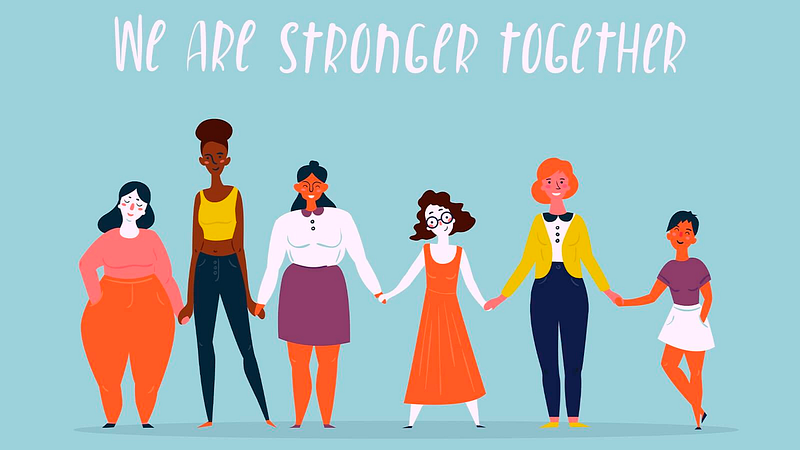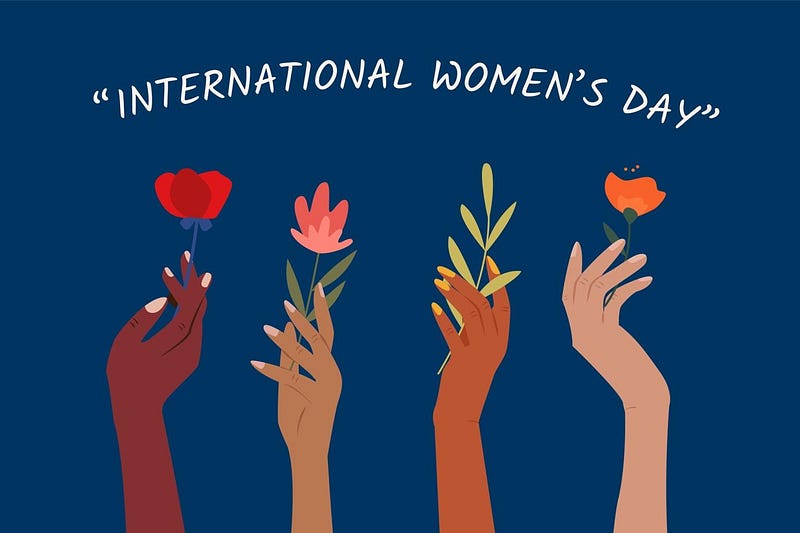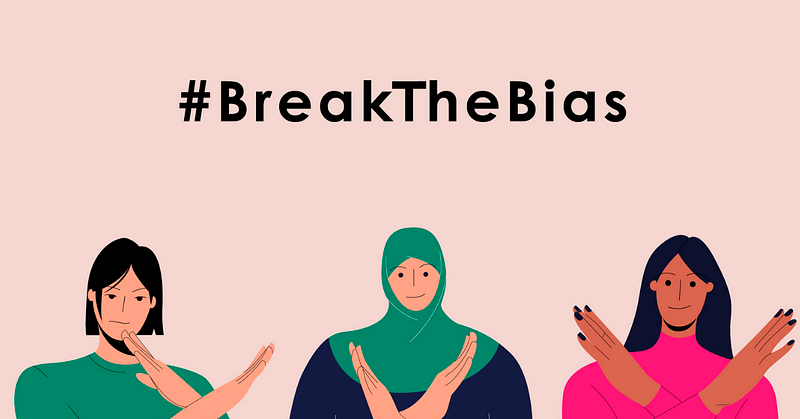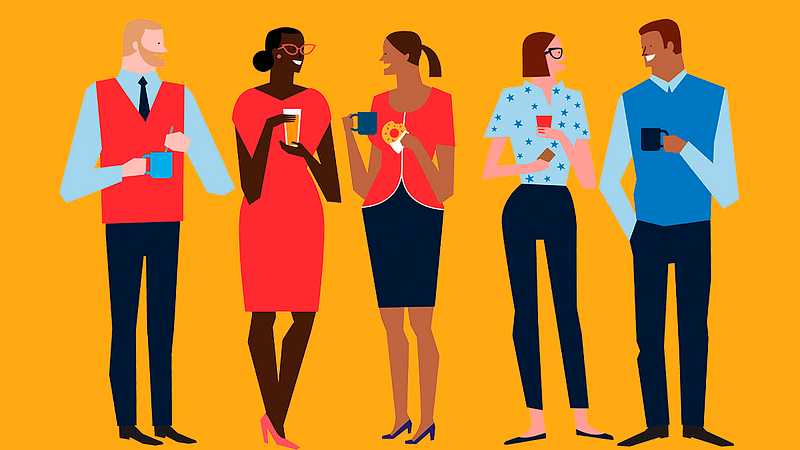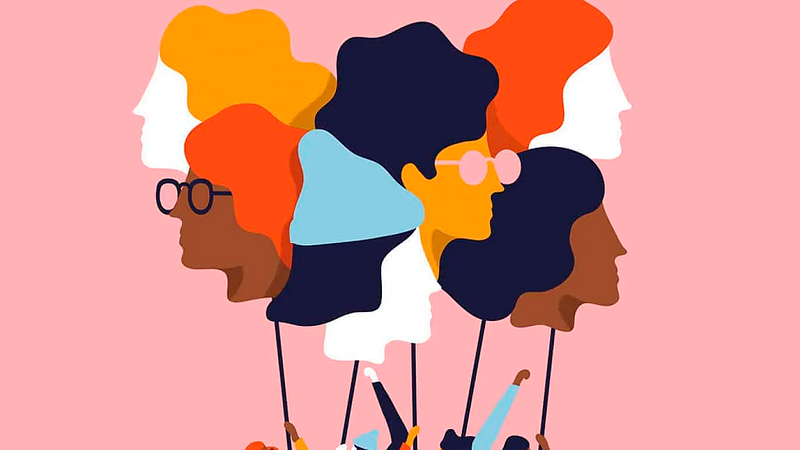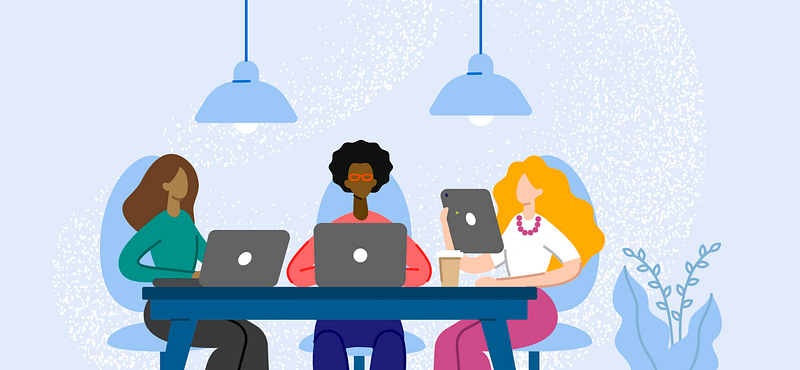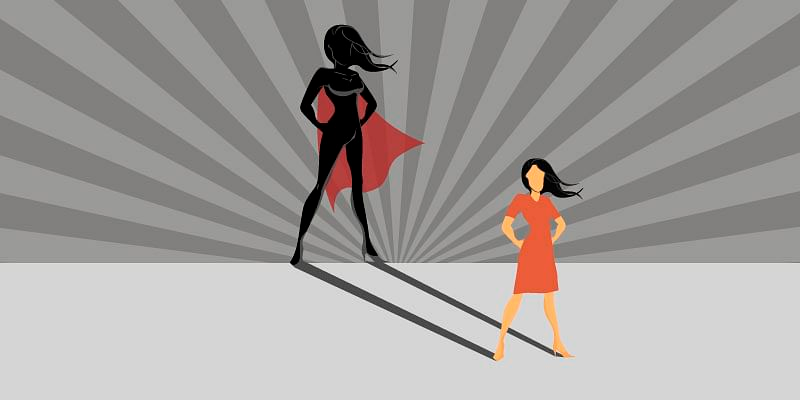Women In Business
Helen Keller once said that women cannot rely on men’s chivalry to provide them with justice — this was decades ago, and one would expect…
Helen Keller once said that women cannot rely on men’s chivalry to provide them with justice — this was decades ago, and one would expect that this situation has changed in today’s world. Apparently not. Women are still exposed to many types of discrimination and not just within their four walls, but also in the workplace, schools, and society.
To be a woman is the greatest honour and privilege. Women still stand tall after they are put through so much; their bodies go through so much pain and suffering, and yet they are considered the weaker one of the two genders. One who isn’t respected for her opinions and beliefs. One who is not entitled to vote or sit at the big man’s table. One only deserving of retribution, abuse and the receiving end of her husband’s pent up anger after a long day of work. One who does not deserve education because she will simply end up washing dishes and cooking for her family in the kitchen.
But that is not her. She is not a punching bag, she is not unworthy, and she is not weak. She is a strong, bright, dedicated woman capable of taking on the world if she so chooses.
Empower Women
Women’s empowerment is defined as promoting women’s self-worth, the ability to make their own decisions, and the right to affect societal change for themselves and others. It is tied to female empowerment — a basic human right that is also necessary for a more peaceful and prosperous world. Female empowerment is associated with different periods in the history of the women’s rights movement in Western countries. The first wave, which began in the 19th and early 20th centuries included suffrage as a significant key feature. The sexual revolution and the role of women in society are part of the second wave in the 1960s. Lastly, the 1990s are frequently cited as the start of third-wave feminism.
Women’s empowerment and the development of women’s rights have become a prominent global movement that has been breaking new ground in recent years. International Women’s Empowerment Day, for example, is gaining popularity. Nonetheless, despite significant improvements, women and girls continue to experience discrimination and violence in every country. The UN Global Compact and UN Women collaborated to develop the Women’s Empowerment Principles, which are used to empower women in the marketplace, workplace, and community. The seven principles of women’s empowerment include:
Create high-level corporate leadership for gender equality
Treat all people fairly at work, respecting and supporting non-discrimination and human rights
Ensure the health, well-being and safety of all workers, whether male or female
Promote education, training and professional development for women
Implement supply chain, marketing practices and enterprise development that empower women
Champion equality through community initiatives and advocacy
Measure and report publicly on progress to create gender equality
Gender equality is a fundamental human right as well as a prerequisite for a peaceful and prosperous world. Girls and women, on the other hand, continue to face major obstacles all over the world. Women are traditionally underrepresented in positions of authority and decision-making. They are paid unfairly for equal labour, and they normally encounter legal and other hurdles that limit their employment options. Girls and women are widely perceived as less valuable than males in developing countries. Instead of going to school, they are forced to do household chores or are married off for a dowry before they reach adulthood. Every year, as many as 12 million underage girls are sent off to get married. While considerable progress has been made in certain parts of the world, much more needs to be done to address the issues of gender inequality.
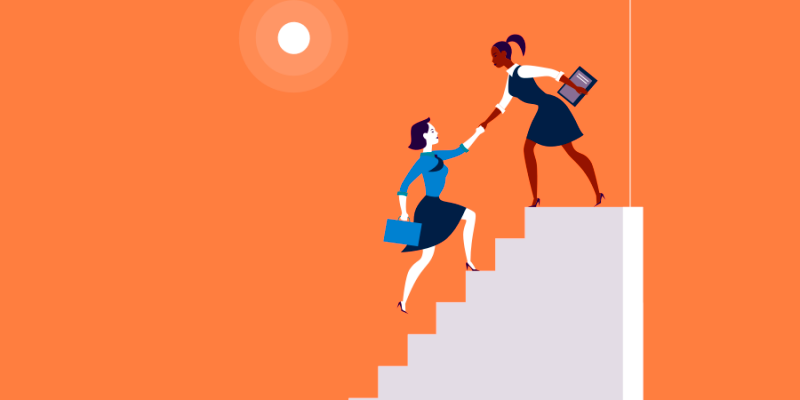
Empowering women is critical for the health and development of families, communities, and different nations. Women can achieve their greatest potential when they live in a safe, contented, and productive environment. They can contribute their abilities to the workforce while also raising happier and healthier kids. They can also contribute to the development of sustainable economies, as well as benefit society and mankind as a whole. And to achieve this, education is a crucial aspect of this empowerment. Girls who have an education can eventually pursue meaningful work and contribute to their country’s economy.
International Women’s Day
March 8 of every year marks International Women’s Day (IWD) all throughout the world as women are recognised and celebrated for their social, economic, cultural and political achievements. Meetings and protests have been held around Europe since 1911, when the first International Women’s Day was observed, with the greatest street demonstrations drawing over 30,000 women. International Women’s Day has evolved into a day to reflect on progress, push for change, and honour the strength and conviction of women who have changed history and those who will continue to achieve gender equality in the future.
International Women’s Day also serves as a reminder of how far women have advanced in their fight for equality, peace, and development. It is a chance to come together, network, and mobilise for positive change. The IWD is one of the most important days of the year for celebrating women’s accomplishments, raising awareness about gender equality, lobbying for accelerated gender parity, and raising funds for female-focused charities.
Changing Climates: Equality Today For A Sustainable Tomorrow — the theme for IWD 2022, recognises and celebrates the contributions of women and girls around the world who are fighting to change the climate of gender equality and to build a sustainable future. The 2030 Sustainable Development Goals need women to use their skills and knowledge to conserve our natural resources and create a healthier, more sustainable world. Women and girls are more vulnerable to disasters and conflicts, but they are usually disregarded in the development of solutions, and their capabilities are usually underutilised. Women are a vital part of the answer since they are the most affected. #BreakTheBias on the other hand is the campaign theme for this year’s IWD. Bias, whether intentional or unconscious, makes it difficult for women to advance. Being aware of the bias alone is not enough — action is required.
Women in the Workplace
If we look at the past, women have traditionally not fared as well in the workplace as men, with most women earning barely three-quarters of what their male counterparts earn — but that is just a scratch on the surface. For the past 20 years, more women than ever before have chosen to start their own businesses, even outperforming men, and they have thrived. Women can and should have a significant presence in the corporate world, regardless of their gender.
According to a study conducted by Babson College, companies with at least one woman in a C-level role have significantly greater valuations than companies with all men holding chief positions. Realistically speaking, companies with a female executive are worth 64% more at first funding and 49% more at last funding than companies with all-male executives. With figures like these, it is no surprise that early-stage investment in companies with at least one female leader has increased three fold in the last 15 years, from 5% to 15%, and yet there is still potential for more.
Women have much different life and work experiences as opposed to men, and hence different viewpoints, which they bring to the corporate world and management in particular. They bring multiple different perspectives, preferences, and approaches to the table. Decision-making then becomes more multi-dimensional and comprehensive from this diversity. Boards with at least one female member take longer to approve acquisitions than boards with entirely male members. This is due to the fact that women are more cautious, analytical and strategic than men. While this inclination may result in smaller and/or fewer purchases, it also allows for more careful and informed decisions.
Women in business are becoming more prevalent. This instance is fuelled by women who want to ‘lean in’ and break into a large company, millennials who want to carve out their own career pathways, and many more who are more entrepreneurial in nature. Mentorship programmes are assisting women in rising higher than before. Women are banding together organising their own networking events, conferences, and meet-ups at the same time, but they still have a long way to go. Women who want to establish a business or expand an existing one have fewer financial options, and they earn less than men, even if they have the same position and degree.
Women must be taken more seriously in the workplace, whether as executives or entrepreneurs. This may make them more risk-averse in acquisitions, but it also leads to greater success in the early stages of a company’s start-up, when more measured decisions have the biggest toll. While achieving workplace equality will take time, women in business is a trend that can and should continue to expand.
Challenges Faced
While it may appear that the world is developing and that women are becoming more involved in the workforce, the truth is quite different. Women face many challenges in the workplace and as reports suggest, “progress isn’t slow. It is stalled”.
Representation of Women
Women continue to be underrepresented at all levels, from entry-level positions to C-suite positions. Women of colour have the least representation in the workplace, according to the Women In the Workplace 2018 study, causing them to fall behind white males, men of colour, and white women. Women of colour make up only 17% of entry-level employment and 4% of C-suite positions. In top managerial positions, the underrepresentation becomes even more prominent. Women make up only 22% of C-suite executives while only 38% of women are promoted to management positions, compared to 62% of men in managerial positions. It is intriguing to know that the number of women and men quitting their jobs is nearly equal. As a result, attrition cannot be held responsible for inequity and misogyny.
Gender Pay Gap
For every dollar earned by men, women only earn 77.9 cents. According to Payscale, the median wage for women in 2018 is around 22% lower than the median salary for men. The quest for equal pay continues in India as well. In India’s agricultural industry, the daily wage for males is 264.05 rupees and for women is 205.32 rupees, as per the Labour Bureau. The average daily wage rate for males in non-agricultural vocations is 271.17, while it is 205.90 for women.
Sexual Harassment
The #MeToo movement brought to light countless cases of women being harassed at work, both sexually and non-sexually. These incidents include inappropriate verbal, visual, nonverbal, and physical harassment. According to the Women in the Workplace survey, 35% of full-time corporate sector women have experienced sexual harassment. According to a survey conducted by the Equal Employment Opportunity Commission, 75% of women who are harassed will not report it. Especially when the offender is a high-ranking official. Fear of being dismissed remains the main cause of victims not reporting the incident.
Unemployment Penalty
Women face greater unemployment penalties during their child-rearing years. It means when women take longer leaves, rehiring them is much more difficult. According to Payscale research referenced earlier, anyone unemployed for less than three months faces a 3.4% penalty, while anyone unemployed for more than a year confronts a 7.3% penalty. This reflects a pay disparity between men and women, making it harder for women to retain senior positions.
Pregnancy Discrimination
According to the Guardian, over 50,000 women have lost their jobs due to maternity discrimination. Pregnancy discrimination is a type of workplace discrimination in which women are dismissed, not recruited, or discriminated against because they are pregnant or expecting. Discrimination can take the shape of disrespectful remarks about a person’s physical or medical condition made by senior officials, clients, peers, or customers. Employers may reduce a female employee’s working hours, compensation, or perks, refuse to promote her or force her to take time off, among other things (paid or unpaid).
Menstruation
Women all across the world have experienced prejudice when on their periods at some point in their lives. When women express feelings such as anger or impatience, they are chastised with remarks such as “stop fussing” or “are you on your period?”. During their periods, women experience excruciating physical discomfort. Men perceive women taking leaves while menstruating as an excuse not to come to work, which is a classic example of daily sexism. A woman in Georgia was fired in 2017 for — believe it or not — menstruating. Her ‘crime’ was that she stained her office chair during the day she was having a heavy flow.
Women Bosses
Female bosses make a lot of the male employees feel intimidated. Numerous studies have shown that males prefer male leaders over female bosses. Since the 1950s, the percentage of people who say they would want to work for a woman has never exceeded 25% in a Gallup poll. This is why women are underrepresented in the workplace: there aren’t enough powerful female leaders at the top, and no one to encourage and assist women who are just starting out and working in entry-level positions.
Many women have shown the world that they are capable of far more than what the world perceives them to be. Oprah Winfrey, Beyonce, Ellen DeGeneres, Jacinda Arden, and J.K Rowling are just a few of the many women who have demonstrated that their identities and backgrounds do not prevent them from achieving greatness. Instead, they’ve transformed their bad luck into a driving force that inspires them to keep striving for achievement even when all else appears lost.
Women are the life and heart of a community, despite the fact that they are seen as a nuisance. Without women, kings and noblemen wouldn’t be born. We, ourselves would not even be here if we weren’t for them. They are the unsung superheroes who save the world but don’t take the credit they deserve. Women should not only be given equal rights but also more for everything they do. Women deserve more. A lot more.
[Written by: Balvin Dhaliwal. Edited by: Suhana Kabeer]



